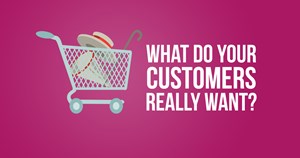Hold on before you start answering that what do you mean by a producer-owned UK wine importer?
Exactly what it says on the tin. A UK wine importer, distributor or supplier that is owned - or part owned - by a separate wine producer business. It is fast becoming the go to trading model for many of our most well known, established and respected wine suppliers - and also a way into the UK market for new suppliers to set themselves up. Go to Companies House and look up who holds the majority, or minority, shares in many of our Top 20 wine suppliers and there will be a long list of famous wine brands and producers sitting there. There are the obvious ones like Pol Roger Agencies or Louis Latour Agencies and long established companies like Fells and Hatch Mansfield that started out on the back of the investments of their main producer partners. Then there are the likes of Mentzendorff (Bollinger), Freixenet Copestick (owned by sparkling wines giant Henkell Freixenet), through to the more subtle ones like Liberty Wines (that has Portugal’s powerhouse, Sogrape, as its majority shareholder). Now there are businesses such as North South Wines that has been able to fast track itself into the Top 10 of major wine distribution businesses thanks to the support of its producer shareholders.
That is an impressive list of companies and producers. Why are they all so keen to get into bed with each other?
Two things. For the UK importer and supplier it gives them the stability and security of having the support and financial backing of well heeled wine producers that are doing business in multiple markets around the world. For the internationally-focused wine producer it gives them, potentially at least, control over the distribution of their main wines in what is still arguably the most competitive and influential wine market in the world. By having a part, or full stake in a UK supplier you and your wines have their feet firmly under an importer’s table and can potentially insist on them prioritising your wines in negotiations with key retailers, merchants and restaurant groups in the UK.
So what’s wrong with that. Sounds like a win, win to me?
That’s because it is and why so many more major UK distributors are likely to open their doors and their books and look for major investment from their key producer partners. Particularly as the cost of doing business in the UK goes up every year on the back of increased duty and higher trading, shipping, energy and staff costs. Knowing you have the support of a producer anxious to widen their network and sell more of their wines in the UK is more than just re-assuring it can be the difference to being in business at all. But there’s the rub. A producer is not just giving you their money for a seat at the table, they want to see you and your sales teams selling more and more of their wine in the UK, potentially at the expense of other long standing producers in your range.
What’s wrong with that?
It all depends on who your producer partner or owner is and how realistic they are about how much influence they can have on their customers and the retail and restaurant wine buyers that ultimately decide which wines go on their list. The fact that one of their favourite and long standing wine importers now has a new producer owner is not necessarily good news for them if it means that there is an obligation, or at least a preference to stocking that producers' wines if they want to carry on doing business to access all the other wines in its range.
That must make for some awkward conversations?
Exactly. There is a fine line - an invisible tightrope if you like - that UK importers with producer owners and partners now need to tread. It is clearly not in either side's interests to do anything that jeopardises potentially long-standing relationships with key customers, and calls for a clear, transparent trading strategy that sets out just what a producer’s expectations will be from any shareholding they might have in an importer.
What would you like to see?
To date most of those discussions and agreements remain very much behind the scenes with little public debate about how these producer partnerships actually work in practice. In such a fast growing area it would be in the industry’s wider interest if those importers and their producer owners and partners were more willing to share their insights and experiences of working together, so that we can see what works well and where the potential danger areas are. That way we can all learn and see which relationships are good for both sides, but most of all for their customers.









